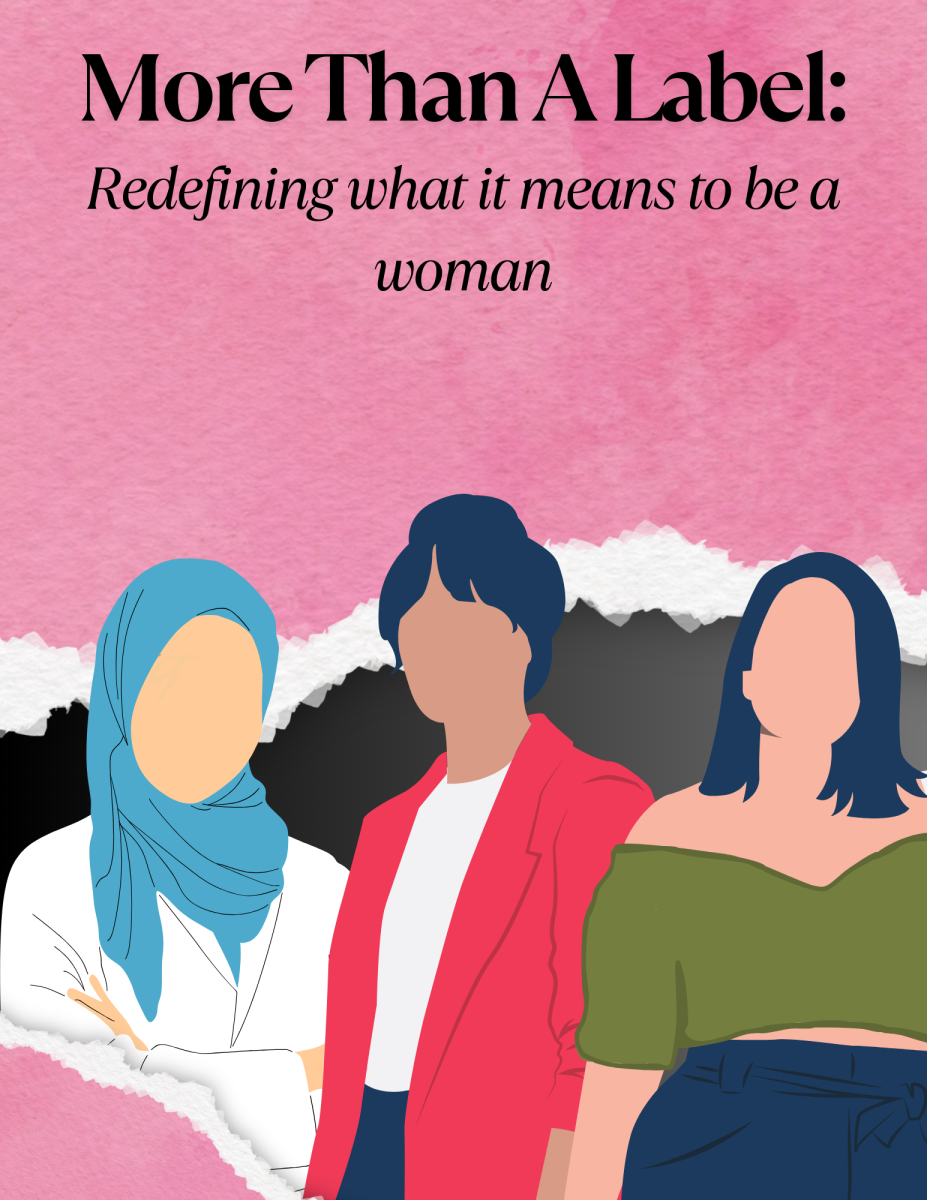When a family hears that they are having a girl, they tend to opt for pink painted nursery walls and frilly, flowery onesies. They shop at stores searching for pretty pink decorations, hair bows, toys and dresses because pink is supposed to represent being a “girl”. It’s light, feminine and ladylike, exactly what society wants women to be.
These labels are thrown at young girls before they have the ability to comprehend why they’re supposed to act differently than boys. It’s not “ladylike” to sit without your legs crossed. “She’s such a tom-boy.” “Girls are more emotional than boys.” Carrying labels like these is not an easy feat at such a young age.
“As a little girl I hated the color pink because I thought it meant that I was weak,” senior Kjirsten Mitchell said. “And in turn I associated femininity with weakness.”
For many, pink is regarded as a very feminine color and, because of that, some young girls grow up trying to resist that label as well as a likeliness for the color. Being “feminine” is a label some embrace, but for others, this label does not fully encapsulate their truth. Rather, it pushes them into a box that does little to encourage positive self-perception. For boys, blue means you’re a strong and capable young man. For girls, pink means you’re a weak and incapable young woman.
While pink can be labeled feminine it is only one of the various labels given to women and it can be just as impactful as the rest. Some of the other most common labels include lazy, bossy, sensitive, high-maintenance or attention-seeking. In certain situations these can be given with spite and they tend to have negative connotations.
In many cases these labels and stereotypes are placed on groups of people or individuals whether they appreciate them or not.
“Anytime a group is labeled, it’s a label typically given to them by somebody else,” English teacher Chelsea Merboth said. ”It’s not usually a label that we give ourselves because we don’t want to be classified. That’s a really terrible way to group people together.”
While some individuals may not mind the labels they are given, not everyone agrees with them. Labeling others can make some feel trapped in a category they never wished to be placed in. For some women, they may feel the pressure of multiple labels they face and battle a contradicting narrative of what they are supposed to be. Women are supposed to be assertive, but not too assertive because that makes them bossy.
They need to be ambitious, but not too ambitious because that makes them power-hungry. Society wants women to stay behind-the-scenes and act as an accessory beside men rather than an equal that acts alongside them.
“It takes a lot to be assertive as a girl because not only are you scared of backlash, but you’re also scared of what people think of you,” Mitchell said.
Women are forced to conform to a world fit for men. Whether that is at school or in workplaces, abilities are underestimated, undermined and women become overlooked. Taking on too much of one characteristic is seen as wrong. Instead, women are expected to blend into crowds, sit back and let men “handle” things. Society would rather objectify women than view them as equals to their counterparts.
“The patriarchal society isn’t built for women, and so as women try to carve out space for themselves it feels jarring,” English teacher Madison Hilbert said.
Instead of conforming to society’s fixed narrative of women, resisting these negative social norms and ideals creates pressure to change them.
“One of the labels that we are unfortunately given is an object for the appreciation of the male gaze. My daughter was terrified of walking home by herself at the end of the school day because she did it once, and grown men were pulling over into side streets trying to get her attention,” Merboth said.
Rather than women being seen for their abilities, knowledge, intelligence and power, all capabilities are overlooked for physical attributes even at young ages. Despite this, women continue to fight for spots in male dominated fields and positions of power.
“Little girls have this idea that if you don’t see a woman as an astronaut or a woman as a scientist, then you can’t be one,” Mitchell expressed.
Representation can show young women that there is a place for them that isn’t limited to fabricated societal obligations. Young women shouldn’t be raised to believe that it is their obligation to have children or take on a more nurturing, “feminine” role in society. While these roles are just as important as any other, their opportunities shouldn’t be limited.
“Toward the end of my junior year I heard wrestling season conditioning was going to start and I mentioned to some friends that I might want to go out for wrestling. The wrestling coach went out of his way during his plan period, pulled me from a class that I was in and took me to an empty classroom to tell me that if I tried out for wrestling he would not put me in,” Merboth said. “I would essentially ride the bench the entire season. No daughter of his would ever be a wrestler. If I had been more audacious as a 17 or 18-year-old girl, I would have taken him to task.”
Oftentimes, the sole fact of being a woman is enough to discredit the entirety of a person’s worth. Despite any goals and ambitions, there are some roles society refuses to see women succeed in.
“There’s this idea that women have to do it all and do it all effortlessly. I think that’s really hard for young girls to try to grapple and deal with,” Hilbert explained.
The obligations and expectations of today’s society can be unattainable and impossible to achieve. Acknowledging this can steer women in a positive direction towards growing in personally beneficial ways rather than societally beneficial ways. Discrediting what society forces upon women fights the norms and labels to represent a new definition of women, one that impacts them positively.
Understanding that labels do not define women starts to change a century long narrow minded perspective into an increasingly optimistic one. Slowly, overtime the world may change as it realizes women know they are worth more than the labels that confine them.
So, when young women start to outgrow the pink painted nursery they were brought home to, they’ll know that it’s okay to like the color pink even if it is labeled girly because as Hilbert expressed, “We don’t have to believe the labels that society tells us to.”







